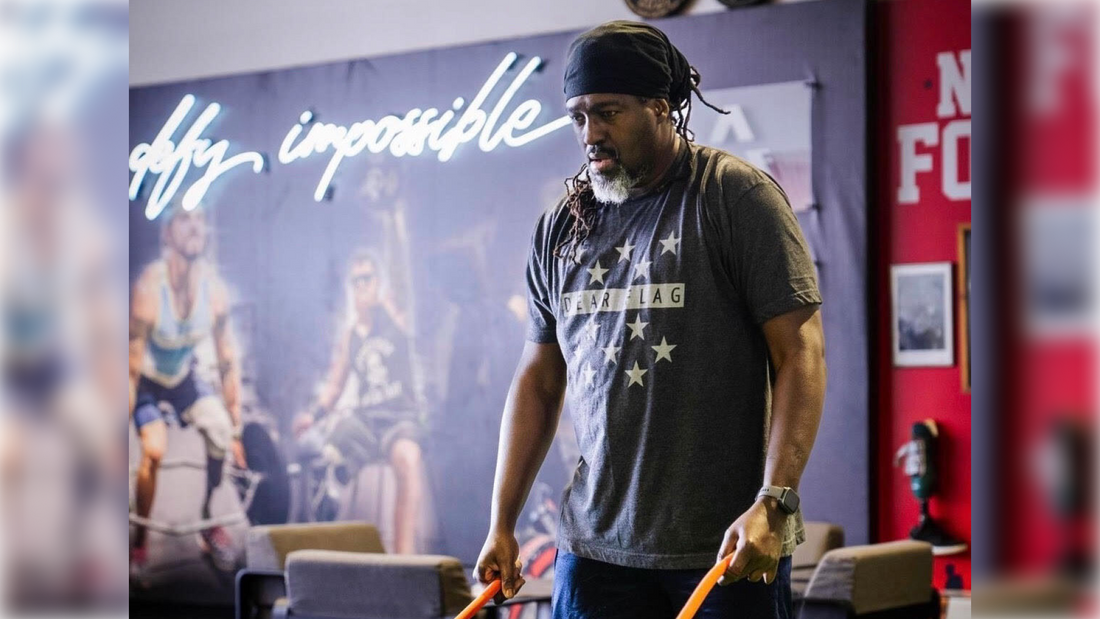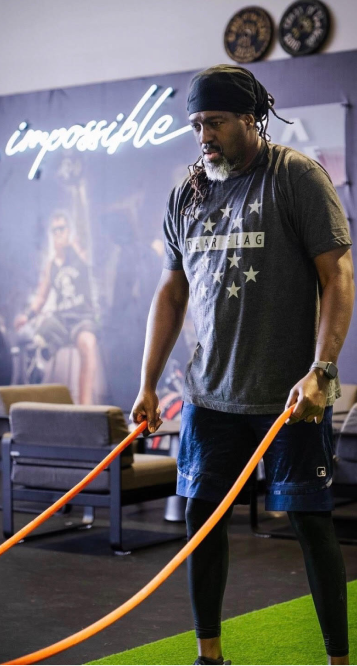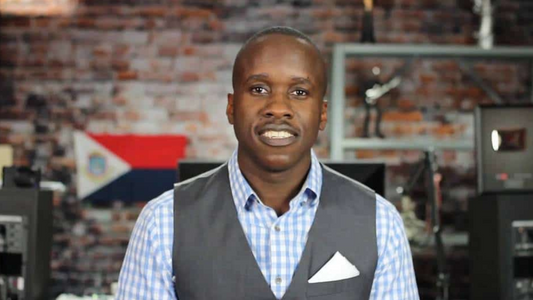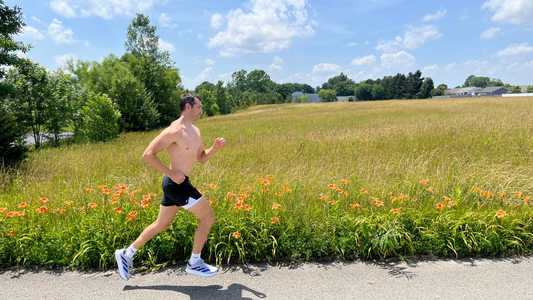

Redefining Personal Fitness with ZOZOFIT User Trevon Ferguson
For Trevon Ferguson, fitness is a way of life. The ZOZOFIT user has played sports since the age of five.
“I was an athlete, [and] played soccer all the way through high school and in the Army, and then I played soccer in Germany for about three years with a little club over there. Fitness has always been part of my lifestyle.”
While on active duty in the Army, Trevon was involved in a severe, traumatic accident, resulting in brain injury and an epilepsy diagnosis.
“I was struggling with my mental health,” he said. “Fitness had taken a backseat because I was having so many seizures on a daily basis.”
Overcoming Hardship & Returning to Fitness
Trevon didn’t want his fitness journey to end due to his energy, and so he pursued wellness by getting connected to the Adaptive Training Foundation, an organization based in the Dallas - Ft. Worth area.
“They have an unorthodox method of helping individuals — veterans and civilians, first responders, you name it — deal with traumatic injuries or pathologies and how those injuries define them.”
The organization offers a 9-week long class three times per year.
“You are going pedal to the metal,” Trevon said. “They work on your mindset, they work on breath work, they work on emotional struggles, whatever you may have. And during the nine weeks, you have to set a goal.”
Trevon came to the Adaptive Training Foundation (ATF) after being told by medical professionals he would never play soccer again due to his epilepsy diagnosis.
“I go into this facility and they say, ‘Well, soccer’s an endurance sport. What if you trained to do a Spartan race?’ At first I was like, these people are nuts.”
But, Trevon took on the challenge and completed his first Spartan race. This experience helped him restart his fitness journey and get back to doing what he loves — staying active.
He’s now completed 40 Spartan races.
Monitoring Progress & Fitness with ZOZOFIT
When Trevon began focusing on fitness again, he got a DEXA scan through one of Adaptive Training Foundation’s partners. DEXA scans measure body composition, looking at the body’s percentage of fat, muscle, and bone.
These metrics are incredibly important for athletes, fitness enthusiasts, and people who are trying to lose weight. DEXA scans, however, are relatively expensive and hard for most people to access on a regular basis to monitor their progress toward their goals.
“The DEXA scan is basically what ZOZOFIT does. It measures the same thing,” said Trevon.
And ZOZOFIT is more accessible. A typical DEXA scan can cost around $150 on average but ZOZOFIT offers its users options that are far more economical than a one-time DEXA scan.
“As an athlete, and in general, people need information. I think information affords us the opportunity to perform better. They say what gets measured gets improved… so for me, [ZOZOFIT] was a no-brainer.”
Trevon uses the goal setting feature in the ZOZOFIT app to measure his progress toward body fat percentage and body measurement goals. Setting a goal is key to building motivation for long-term results.
Now, Trevon is a licensed naturopath and is getting certified as a personal trainer. He is using his platform to share ZOZOFIT and how its 3D body scanning technology can make a difference for people at all stages in their wellness journey.
Looking at What’s Next
Since starting with his first Spartan race, Trevon has continually looked at ways he can improve. His first race was a 5K with 30 obstacles. From there, he only increased the difficulty and has also completed a 10K with 25 obstacles and a half-marathon with 30 obstacles.
“I’m always finding the next big thing. [I am] training for and going to Tanzania to climb Mount Kilimanjaro, but even before that… next year I turned 50 and am planning a 50-mile ruck march.”
The ruck march will be a birthday celebration, but will also serve as a fundraiser for the Adaptive Training Foundation.
“The Adaptive Training Foundation reminds us that when you get to that goal, the key is not to just stay there in celebration, it’s to look around and say, 'Okay, so what’s the next thing? What’s the next mountain that I can conquer? What is the next thing that keeps pulling me forward?' Even if you have a setback, there’s still something that you’re working toward regardless.”
Getting back to fitness has offered Trevon a sense of community.
“It’s a way to communicate with other people,” he said. “It’s a way to say, hey, I’m here to support you.”


![zf-w-[168px] zf-h-[40px]](http://zozofit.com/cdn/shop/t/15/assets/logo-desktop.png?v=117713855448369080381753069598)


